#National Liberation Front (Greece)
Text
Dimitrios Psarros
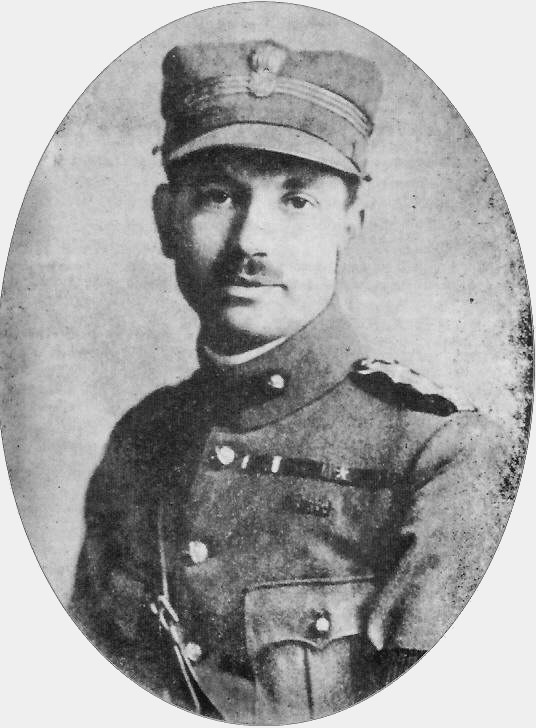
ディミトリオス・プサロス (ギリシャ語: Δημήτριος Ψαρρός ; 1893 年 – 1944 年 4 月 17 日) は、ギリシャの陸軍士官であり、レジスタンスグループの創設者であり、国民社会解放( EKKA) の指導者でした。解放戦線(EAM) と国民共和ギリシャ連盟(EDES)。1944年、ギリシア共産党軍により処刑される。
#- Apr.17.1944.#Date of Death#Dimitrios Psarros#National Liberation Front (Greece)#ナショナル・レパブリカン・ギリシャ・リーグ
0 notes
Text
Incredibly important pictures from the Greek resistance against the Nazi Occupation of Greece in WWII

ELAS partisans. The Greek People's Liberation Army (ELAS) was the largest and most significant of the military organizations of the Greek resistance.

Ares Velouchiotis was the most prominent leader and chief instigator of ELAS and the military branch of the National Liberation Front (EAM).

When you're both a priest and a partisan.

Voting. EAM's women had equal rights and were invaluable to the Liberation Front. The political right of women to vote would be officially recognized by the Greek state about 10 years later, in 1952.
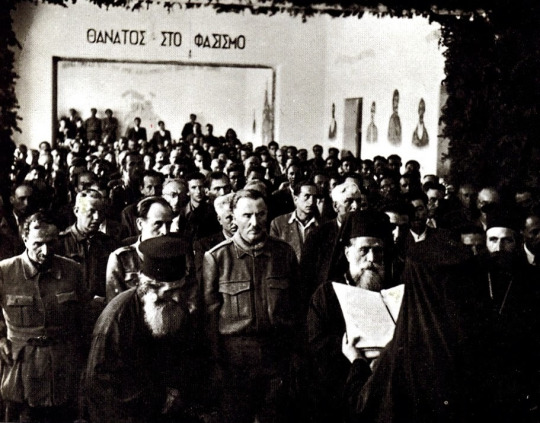
"Death to fascism"
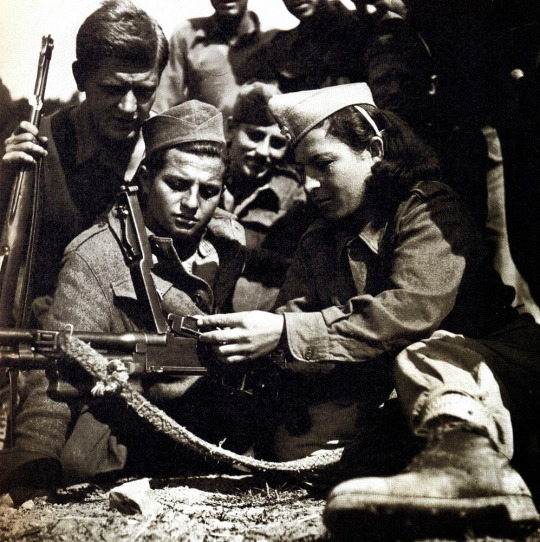
Learning to use the firearms.
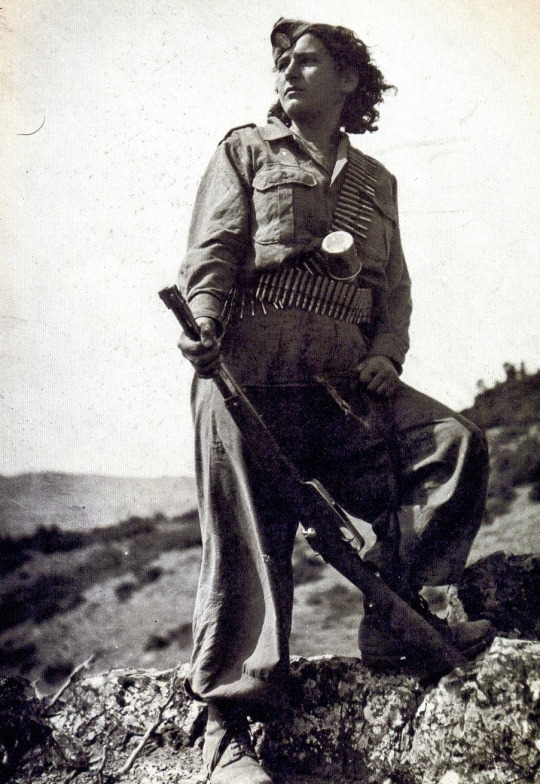
Partisan Titika.

Partisans. PEEA, the government formed by EAM, was also called "the mountain government", as it operated from the mountains, so that its people and their activities would not get as easily detected by the Germans.
All photos by Spyros Meletzis (1906-2003)
132 notes
·
View notes
Text
NEW YORK (AP) — The National Rifle Association and its former longtime leader were found liable Friday in a lawsuit centered on the organization’s lavish spending.
The New York jury found that Wayne LaPierre, who was the NRA’s CEO for three decades, misspent millions of dollars of the group’s money on pricey perks, and it ordered him to repay the group $4,351,231. Jurors also found that the NRA omitted or misrepresented information in its tax filings and violated New York law by failing to adopt a whistleblower policy.
LaPierre, 74, sat stone-faced in the front row of the courtroom as the verdict was read aloud. The jury actually found him liable for $5.4 million, but it determined he���d already paid back a little over a million.
The verdict is a win for New York Attorney General Letitia James, a Democrat who campaigned on investigating the NRA’s not-for-profit status. It is the latest blow to the powerful group, which in recent years has been beset by financial troubles and dwindling membership. LaPierre, its longtime face, announced his resignation on the eve of the trial.
NRA general counsel John Frazer and retired finance chief Wilson Phillips were also defendants in the case. Phillips was ordered to pay $2 million in damages to the NRA. Frazer, meanwhile, was found to have violated his duties, but was not ordered to pay any money.
The penalties paid by LaPierre and Phillips will go back to the NRA, which was portrayed in the case both as a defendant that lacked internal controls to prevent misspending and as a victim of that same misconduct.
James also wants the three men to be banned from serving in leadership positions at any charitable organizations that conduct business in New York. A judge will decide that question during the next phase of the state Supreme Court trial.
Another former NRA executive turned whistleblower, Joshua Powell, settled with the state last month, agreeing to testify at the trial, pay the NRA $100,000 and forgo further involvement with nonprofits.
James sued the NRA and its executives in 2020 under her authority to investigate not-for-profits registered in the state.
She originally sought to have the entire organization dissolved, but Manhattan Judge Joel M. Cohen ruled in 2022 that the allegations did not warrant a “corporate death penalty.”
The trial, which began last month, cast a spotlight on the leadership, organizational culture and finances of the powerful lobbying group, which was founded more than 150 years ago in New York City to promote rifle skills and grew into a political juggernaut that influenced federal law and presidential elections.
Before he stepped down, LaPierre, had led the NRA’s day-to-day operations since 1991, acting as its face and becoming one of the country’s most influential figures in shaping gun policy.
During the trial, state lawyers argued that he dodged financial disclosure requirements while treating the NRA as his personal piggy bank, liberally dipping into its coffers for African safaris and other questionable expenditures.
His lawyer cast the trial as a political witch hunt by James.
LaPierre billed the NRA more than $11 million for private jet flights and spent more than $500,000 on eight trips to the Bahamas over a three-year span, state lawyers said.
He also authorized $135 million in NRA contracts for a vendor whose owners showered him with free trips to the Bahamas, Greece, Dubai and India, as well as access to a 108-foot (33-meter) yacht.
LaPierre claimed he hadn’t realized the travel tickets, hotel stays, meals, yacht access and other luxury perks counted as gifts, and that the private jet flights were necessary for his safety.
But he conceded that he had wrongly expensed private flights for his family and accepted vacations from vendors doing business with the NRA without disclosing them.
Among those who testified at the trial was Oliver North, a one-time NRA president and former National Security Council military aide best known for his central role in the Iran-Contra scandal of the 1980s. North, who resigned from the NRA in 2019, said he was pushed out after raising allegations of financial irregularities.
After reporting a $36 million deficit in 2018 fueled largely by misspending, the NRA cut back on longstanding programs that had been core to its mission, including training and education, recreational shooting and law enforcement initiatives. In 2021, it filed for bankruptcy and sought to incorporate in Texas instead of New York, but a judge rejected the move, saying it was an attempt to duck James’ lawsuit.
Despite its recent woes, the NRA remains a political force. Republican presidential hopefuls flocked to its annual convention last year and former President Donald Trump spoke at an NRA event earlier this month — his eighth speech to the association, it said.
17 notes
·
View notes
Text
"The pattern in Greece was largely the same as in Italy, with the National Liberation Front (EAM) — under pressure from both the communists and the Soviet Union — surrendering its gains to the British. The only difference was that, when pressed far enough, they eventually defied Stalin by fighting back.
The EAM, after virtually possessing most of Greece and besting the British forces in combat, willingly surrendered its arms and staked its future on the reliability of British promises and their small and anxious local allies. This abdication was possible only because the Communists in the EAM dictated it over a movement they could barely control.[169]
But despite the Greek Communist Party (KKE) and the communist ELAS guerrillas going out of their way to appease the British — surrendering arms and staying outside Athens in accord with the Varkiza agreement — Churchill, following a long series of betrayals, packed the Greek army with prewar monarchists and wartime Nazi collaborators. The conservative government it installed, facing a reality in which the communists would likely come to power in an unfettered electoral system, ignored its own obligations to ELAS and the communists under Varkiza and resorted to an escalating series of repressive actions.[170] “The terror that ensued was ruthless, and ultimately self-defeating. It began immediately after the January 1945 truce and mounted in intensity.”
The regime systematically purged the army and political bureaucracy of pro-EAM elements. There was casual terror of random assassinations and beatings, and systematic repression by security committees and courts-martial that simply arrested EAM supporters and detained them without trial. The government tightly controlled trade unions, and charged former EAM underground government tax collectors with robbery and looting. The regime now judged ELAS executions of collaborators as murder. Outside the Athens area the government-proclaimed martial law lasted until August. The police and their supporters beat up EAM and Communists news-vendors, even arrested purchasers at random, and shot leftist reporters. Right-wing bands roamed many districts, doling out retribution at will. When the British Parliamentary Legal Mission visited Greece at the end of the year they reported that wholesale terror filled the filthy, crowded jails with a very minimum of 50,000 prisoners, and by comparison the excellent, even comfortable, prisons for some of the worst fascists were comparatively empty.[171]
Yet as late as May 1945, Communist Party Secretary Nikos Zachariadis — newly returned from imprisonment in a Nazi concentration camp — attempted to purge the Party of militants and enforce continued cooperation with the British and the rightist regime.[172] But despite pressure from Britain and from Stalin for the Communist Party to function in electoral politics as just another party, given the likelihood of communist victory in free elections the rightists in power felt they had no choice but to intensify the terror and repression.[173]
The result, from mid-1946 on, was a growing civil war in which maintaining the government in power was beyond the resources of the British, and the United States assumed Britain’s interest in Greece and saved the regime from collapse with U.S. funds and military advisors.[174]
-Kevin Carson, "The Undeclared Condominium: The USSR As Partner in a Conservative World Order" (2023)
6 notes
·
View notes
Photo
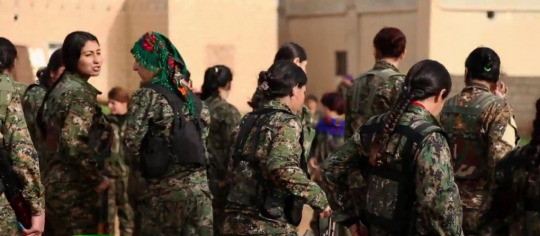

#CorpMedia #Idiocracy #Oligarchs #MegaBanks vs #Union #Occupy #NoDAPL #BLM #SDF #DACA #MeToo #Humanity #DemExit #FeelTheBern
The YPJ: Why We Exist [UPDATES]
http://new-compass.net/articles/ypj-why-we-exist
Formed in 2013, the 24,000-strong YPJ (Women’s Defence Units) now controls most of the revolutionary region of Rojava in northern Syria, together the YPG (People’s Defence Units). It was also part of the recent liberation of the city of Raqqa from ISIS. Here commander, Nesrin Abdullah, explains why the YPJ exists, its adherence to Democratic Confederalism and its commitment to gender equality...

RELATED UPDATE: YPJ: Female Freedom Fighters on the Front Lines
https://www.polemics-magazine.com/int/ypj-female-freedom-fighters
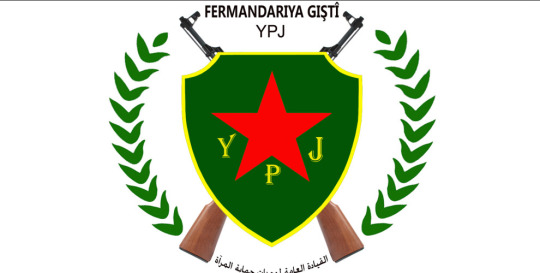
RELATED UPDATE: YPJ General Command: We will avenge our comrades against Turkish occupation and its spies
https://hawarnews.com/en/haber/ypj-general-command-we-will-avenge-our-comrades-against-turkish-occupation-and-its-spies-h31948.html

RELATED UPDATE: YPJ Spox: Operation Mirkan creates ground for timely response to genocidal attacks
https://hawarnews.com/en/haber/ypj-spox-operation-mirkan-creates-ground-fortimely-response-to-genocidal-attacks-h33156.html
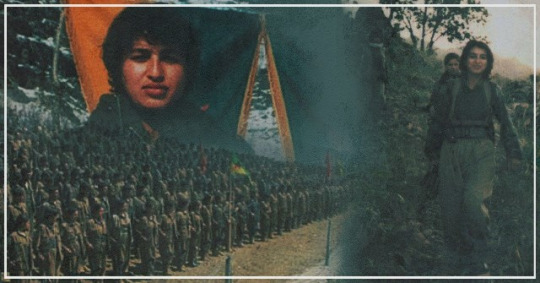
RELATED UPDATE: YPJ General Command: Bêrîtan approach became more insistence and stronger
https://www.hawarnews.com/en/haber/ypj-general-command-brtan-approach-became-more-insistence-and-stronger-h33423.html
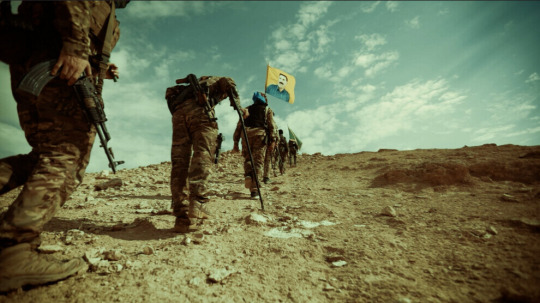
RELATED UPDATE: Internationalist fighters shoot music video ‘Çerxa Sorese’
https://anfenglish.com/culture/internationalist-fighters-shoot-music-video-Cerxa-Sorese-63981

RELATED UPDATE: YPJ commemorates Evîn Goyî, vowing to strengthen the struggle
https://anfenglish.com/women/ypj-commemorates-evin-goyi-vowing-to-strengthen-the-struggle-64550

RELATED UPDATE: YPJ holds online meeting: National unity will be achieved through women's resistance
https://anfenglish.com/women/ypj-holds-online-meeting-national-unity-will-be-achieved-through-women-s-resistance-64627

RELATED UPDATE: Arab YPJ fighter Hela Serêkaniyê martyred
https://anfenglish.com/women/arab-ypj-fighter-hela-serekaniye-martyred-64746
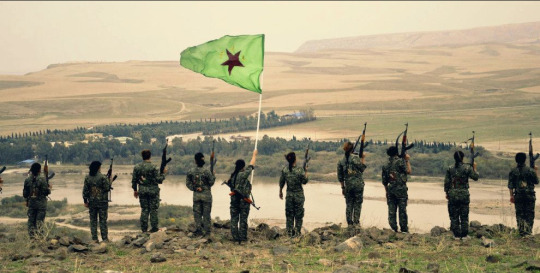
RELATED UPDATE: YPJ statement on the fifth anniversary of the attack on Afrin
https://www.hawarnews.com/en/haber/ypj-statement-on-the-fifth-anniversary-of-the-attack-on-afrin-h34805.html
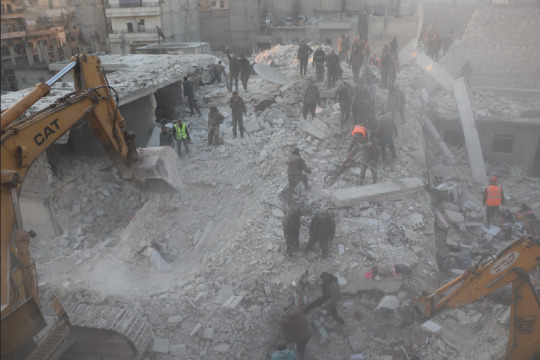
RELATED UPDATE: General Command of YPJ offers condolences to families' victims of Sheikh Maqsoud
https://www.hawarnews.com/en/haber/general-command-of-ypj-offers-condolences-to-families-victims-of-sheikh-maqsoud-h34866.html
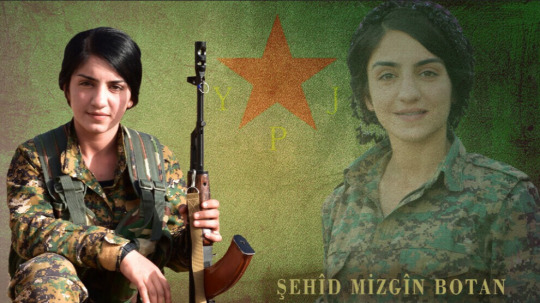
RELATED UPDATE: YPJ commander Rojda Kayner (Mizgin Botan) dies in a traffic accident
https://anfenglish.com/rojava-syria/ypj-commander-rojda-kayner-mizgin-botan-dies-in-a-traffic-accident-65231
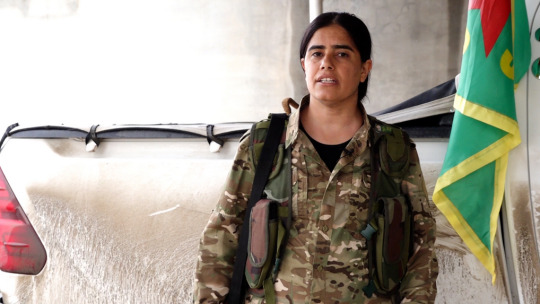
RELATED UPDATE: YPJ commander: our units have main role of “Revenge for Raqqa’s Martyrs” campaign
https://www.hawarnews.com/en/haber/ypj-commander-our-units-have-main-role-of-revenge-for-raqqas-martyrs-campaign-h34983.html
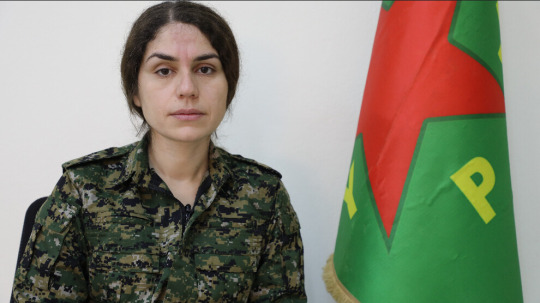

RELATED UPDATE: WATCH Threat of invasion against Rojava and the current situation in North-East Syria – IV
https://anfenglish.com/features/threat-of-invasion-against-rojava-and-the-current-situation-in-north-east-syria-iv-65292

RELATED UPDATE: YPJ fighter wounded in Turkish attack dies
https://anfenglish.com/women/ypj-fighter-wounded-in-turkish-attack-dies-65418
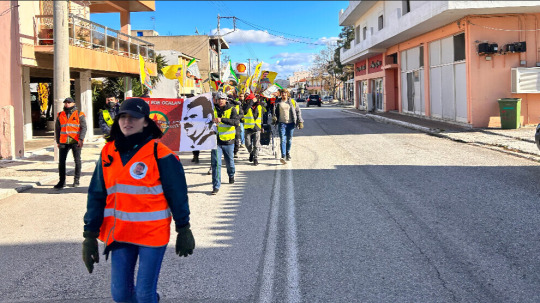
RELATED UPDATE: WATCH Three-day march in Greece: “Freedom for 0calan, status for Kurdistan”
https://anfenglishmobile.com/news/three-day-march-in-greece-freedom-for-Ocalan-status-for-kurdistan-65496
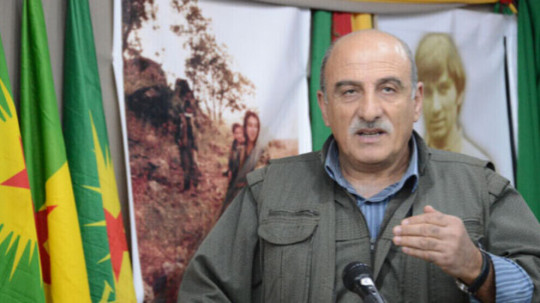
RELATED UPDATE: Kalkan: Young people are the most active in Kurdistan and all over the world
https://anfenglishmobile.com/features/kalkan-65498

RELATED UPDATE: Film “Kobanê” to be screened in Vienna in solidarity with earthquake victims
https://anfenglish.com/news/film-kobane-to-be-screened-in-vienna-in-solidarity-with-earthquake-victims-65510

RELATED UPDATE: Kurdish YPJ Flag
https://www.calton-books.co.uk/flags/kurdish-ypj-flag/

RELATED UPDATE: Ypj T-Shirts
https://www.redbubble.com/shop/ypj+t-shirts
8 notes
·
View notes
Text
Events 3.10
241 BC – First Punic War: Battle of the Aegates: The Romans sink the Carthaginian fleet bringing the First Punic War to an end.
298 – Roman Emperor Maximian concludes his campaign in North Africa and makes a triumphal entry into Carthage.
947 – The Later Han is founded by Liu Zhiyuan. He declares himself emperor.
1496 – After establishing the city of Santo Domingo, Christopher Columbus departs for Spain, leaving his brother in command.
1535 – Spaniard Fray Tomás de Berlanga, the fourth Bishop of Panama, discovers the Galápagos Islands by chance on his way to Peru.
1607 – Susenyos I defeats the combined armies of Yaqob and Abuna Petros II at the Battle of Gol in Gojjam, making him Emperor of Ethiopia.
1629 – Charles I dissolves the Parliament of England, beginning the eleven-year period known as the Personal Rule.
1661 – French "Sun King" Louis XIV begins his personal rule of France after the death of his premier, the Cardinal Mazarin.
1735 – An agreement between Nader Shah and Russia is signed near Ganja, Azerbaijan and Russian troops are withdrawn from occupied territories.
1762 – French Huguenot Jean Calas, who had been wrongly convicted of killing his son, dies after being tortured by authorities; the event inspired Voltaire to begin a campaign for religious tolerance and legal reform.[
1814 – Emperor Napoleon I is defeated at the Battle of Laon in France.
1830 – The Royal Netherlands East Indies Army is created.
1831 – The French Foreign Legion is created by Louis Philippe, the King of France, from the foreign regiments of the Kingdom of France.
1848 – The Treaty of Guadalupe Hidalgo is ratified by the United States Senate, ending the Mexican–American War.
1861 – El Hadj Umar Tall seizes the city of Ségou, destroying the Bamana Empire of Mali.
1873 – The first Azerbaijani play, The Adventures of the Vizier of the Khan of Lenkaran, prepared by Akhundov, is performed by Hassan-bey Zardabi and dramatist and Najaf-bey Vezirov.
1876 – The first successful test of a telephone is made by Alexander Graham Bell.
1891 – Almon Strowger patents the Strowger switch, a device which led to the automation of telephone circuit switching.
1906 – The Courrières mine disaster, Europe's worst ever, kills 1099 miners in northern France.
1909 – By signing the Anglo-Siamese Treaty of 1909, Thailand relinquishes its sovereignty over the Malay states of Kedah, Kelantan, Perlis and Terengganu, which become British protectorates.
1922 – Mahatma Gandhi is arrested in India, tried for sedition, and sentenced to six years in prison, only to be released after nearly two years for an appendicitis operation.
1933 – The Long Beach earthquake affects the Greater Los Angeles Area, leaving around 108 people dead.
1944 – Greek Civil War: The Political Committee of National Liberation is established in Greece by the National Liberation Front.
1945 – World War II: The U.S. Army Air Force firebombs Tokyo, and the resulting conflagration kills more than 100,000 people, mostly civilians.
1949 – Mildred Gillars ("Axis Sally") is convicted of treason.
1952 – Fulgencio Batista leads a successful coup in Cuba.
1959 – Tibetan uprising: Fearing an abduction attempt by China, thousands of Tibetans surround the Dalai Lama's palace to prevent his removal.
1966 – Military Prime Minister of South Vietnam Nguyễn Cao Kỳ sacks rival General Nguyễn Chánh Thi, precipitating large-scale civil and military dissension in parts of the nation.
1969 – In Memphis, Tennessee, James Earl Ray pleads guilty to assassinating Martin Luther King Jr. He later unsuccessfully attempts to recant.
1970 – Vietnam War: Captain Ernest Medina is charged by the U.S. military with My Lai war crimes.
1975 – Vietnam War: Ho Chi Minh Campaign: North Vietnamese troops attack Ban Mê Thuột in the South on their way to capturing Saigon in the final push for victory over South Vietnam.
1977 – Astronomers discover the rings of Uranus.
1989 – Air Ontario Flight 1363, a Fokker F-28 Fellowship, crashes at Dryden Regional Airport in Dryden, Ontario, Canada, killing 24.
1990 – In Haiti, Prosper Avril is ousted 18 months after seizing power in a coup.
2000 – The Dot-com bubble peaks with the NASDAQ Composite stock market index reaching 5,048.62.
2006 – The Mars Reconnaissance Orbiter arrives at Mars.
2017 – The impeachment of President Park Geun-hye of South Korea in response to a major political scandal is unanimously upheld by the country's Constitutional Court, ending her presidency.
2019 – Ethiopian Airlines Flight 302, a Boeing 737 MAX, crashes, leading to all 737 MAX aircraft being grounded worldwide.
2 notes
·
View notes
Text
Want to know more about the uniform of the Evzones? Then read on with our quick guide to the essential elements.
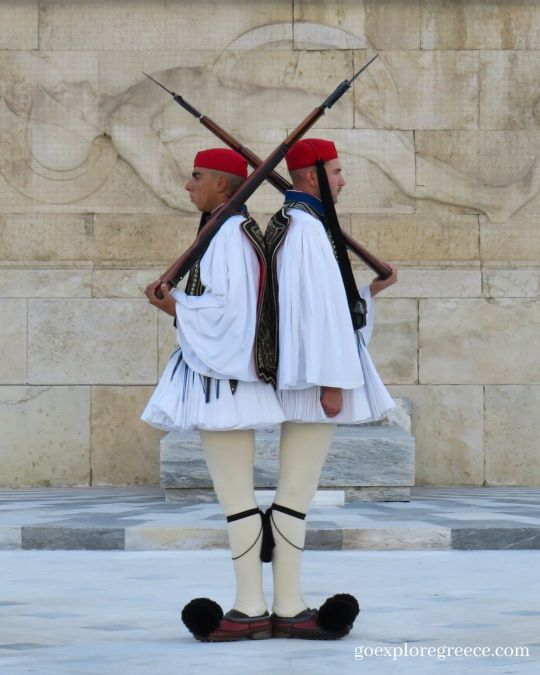
The Farion (Cap)
Made from a soft red baise and features a long silk tassel. The front of the cap has the Greek coat of arms with the officer's rank displayed underneath.
The Fermeli (Waistcoat)
Taking months to make and is hand-embroidered entirely from wool, with thousands of stitching holes. It distinguishes the rank of the Evzone, although it will take a keen eye to identify the subtle stripes placed at the back right tail of the coat, one for a Corporal and two for a Sergeant, and none will be visible for Privates.
The Ypodetes (Shirt)
The wide-sleeved white shirt flares as they march and is thought to symbolise the purity of the national purpose. Underneath the wide sleeve, there is a button-down long sleeve that reaches the wrist.
The Foustanella (Skirt)
Made from over 30 metres of fabric and features 400 pleats to represent the liberation of Greece from the years of Ottoman occupation. The Krossia (braided fringes) are blue and white after the colours of the Greek Flag.
The Tsarouchia (Shoes)
Each shoe weighs over 1.5 kilos and features at least 60 nails on the base to simulate the sound of battle during the movement of the Evzone. The toe of the Tsarouchia is pointed upwards and covered by a black silk pom-pom, hand-cut to shape. The shoe base is made from cowhide, and over 300 hand stitches are required to hold everything together.
M1 Garand gun
The gun weighs over five kilograms and puts enormous pressure on the body at the end of every movement. It's also a form of communication. When the butt is slammed hard onto the ground, the Evzone informs those around that they require assistance. The bayonet represents the hand-to-hand fighting that has often occurred during various times of war.
#greece#goexploregreece#travel#mustsee#mustvisit#greek#europe#athens#military#uniform#athens city#travel destinations#display
2 notes
·
View notes
Photo

The Balkan Wars
Unraveling Aspirations and Shifting Alliances
Paving the Way for Conflict
As Bulgaria’s capital industry burgeoned, the need for trade outlets in the Aegean became apparent. Simultaneously, the people of Macedonia and Lower Thrace endured the enduring burden of Ottoman rule. In this complex landscape, a war seemed inevitable, driven by varied aspirations that momentarily converged on common goals.
War as a “Sacred Cause”
Post-insurrections and the attainment of state independence, the Bulgarian populace viewed war against Turkey as the sacred means to address the national question. This endeavor aimed to liberate compatriots in Macedonia and the Odrin region, offering a potential solution to their plight.
The Balkan Alliance Emerges
With the global powers teetering on the brink of a world war, the Triple Alliance and the Entente sought allies in the Balkans. The result was the formation of the Balkan Alliance under Russian patronage. This strategic coalition united Balkan Christian states against a still formidable Turkey and served as a tool for the Entente’s influence in the Peninsula Private Turkey Tours.
Exploiting Ottoman Weakness
Seizing the weakened state of the Ottoman Empire after its defeats in the war with Italy, the Bulgarian rulers, alongside Serbia, Greece, and later Montenegro, established the Balkan Entente in 1912. This alliance aimed to exploit the Ottoman Empire’s vulnerability.
Bulgarian-Serbian Treaty
The Bulgarian-Serbian Treaty, signed on February 29th, 1912, targeted Turkey and envisioned the division of future free Macedonia into two regions or zones. Bulgaria, assuming a pivotal role in the conflict, committed to deploying a substantial force and leading the war on the crucial Thracian front against the principal Turkish forces.
Challenges Within the Balkan Alliance
While the Balkan Alliance promised unity, it soon became evident that the union was fragile and temporary. Unresolved territorial issues created internal tensions. Bulgaria, undertaking significant responsibilities, found itself grappling with the explosive dynamics of conflicting interests within the alliance.
Prelude to Conflict
The Balkan Wars were not just battles on the Thracian front but also a complex interplay of shifting alliances, national aspirations, and geopolitical strategies. As Bulgaria assumed a central role, the stage was set for a conflict that would reshape the region’s political landscape.
0 notes
Photo

The Balkan Wars
Unraveling Aspirations and Shifting Alliances
Paving the Way for Conflict
As Bulgaria’s capital industry burgeoned, the need for trade outlets in the Aegean became apparent. Simultaneously, the people of Macedonia and Lower Thrace endured the enduring burden of Ottoman rule. In this complex landscape, a war seemed inevitable, driven by varied aspirations that momentarily converged on common goals.
War as a “Sacred Cause”
Post-insurrections and the attainment of state independence, the Bulgarian populace viewed war against Turkey as the sacred means to address the national question. This endeavor aimed to liberate compatriots in Macedonia and the Odrin region, offering a potential solution to their plight.
The Balkan Alliance Emerges
With the global powers teetering on the brink of a world war, the Triple Alliance and the Entente sought allies in the Balkans. The result was the formation of the Balkan Alliance under Russian patronage. This strategic coalition united Balkan Christian states against a still formidable Turkey and served as a tool for the Entente’s influence in the Peninsula Private Turkey Tours.
Exploiting Ottoman Weakness
Seizing the weakened state of the Ottoman Empire after its defeats in the war with Italy, the Bulgarian rulers, alongside Serbia, Greece, and later Montenegro, established the Balkan Entente in 1912. This alliance aimed to exploit the Ottoman Empire’s vulnerability.
Bulgarian-Serbian Treaty
The Bulgarian-Serbian Treaty, signed on February 29th, 1912, targeted Turkey and envisioned the division of future free Macedonia into two regions or zones. Bulgaria, assuming a pivotal role in the conflict, committed to deploying a substantial force and leading the war on the crucial Thracian front against the principal Turkish forces.
Challenges Within the Balkan Alliance
While the Balkan Alliance promised unity, it soon became evident that the union was fragile and temporary. Unresolved territorial issues created internal tensions. Bulgaria, undertaking significant responsibilities, found itself grappling with the explosive dynamics of conflicting interests within the alliance.
Prelude to Conflict
The Balkan Wars were not just battles on the Thracian front but also a complex interplay of shifting alliances, national aspirations, and geopolitical strategies. As Bulgaria assumed a central role, the stage was set for a conflict that would reshape the region’s political landscape.
0 notes
Photo

The Balkan Wars
Unraveling Aspirations and Shifting Alliances
Paving the Way for Conflict
As Bulgaria’s capital industry burgeoned, the need for trade outlets in the Aegean became apparent. Simultaneously, the people of Macedonia and Lower Thrace endured the enduring burden of Ottoman rule. In this complex landscape, a war seemed inevitable, driven by varied aspirations that momentarily converged on common goals.
War as a “Sacred Cause”
Post-insurrections and the attainment of state independence, the Bulgarian populace viewed war against Turkey as the sacred means to address the national question. This endeavor aimed to liberate compatriots in Macedonia and the Odrin region, offering a potential solution to their plight.
The Balkan Alliance Emerges
With the global powers teetering on the brink of a world war, the Triple Alliance and the Entente sought allies in the Balkans. The result was the formation of the Balkan Alliance under Russian patronage. This strategic coalition united Balkan Christian states against a still formidable Turkey and served as a tool for the Entente’s influence in the Peninsula Private Turkey Tours.
Exploiting Ottoman Weakness
Seizing the weakened state of the Ottoman Empire after its defeats in the war with Italy, the Bulgarian rulers, alongside Serbia, Greece, and later Montenegro, established the Balkan Entente in 1912. This alliance aimed to exploit the Ottoman Empire’s vulnerability.
Bulgarian-Serbian Treaty
The Bulgarian-Serbian Treaty, signed on February 29th, 1912, targeted Turkey and envisioned the division of future free Macedonia into two regions or zones. Bulgaria, assuming a pivotal role in the conflict, committed to deploying a substantial force and leading the war on the crucial Thracian front against the principal Turkish forces.
Challenges Within the Balkan Alliance
While the Balkan Alliance promised unity, it soon became evident that the union was fragile and temporary. Unresolved territorial issues created internal tensions. Bulgaria, undertaking significant responsibilities, found itself grappling with the explosive dynamics of conflicting interests within the alliance.
Prelude to Conflict
The Balkan Wars were not just battles on the Thracian front but also a complex interplay of shifting alliances, national aspirations, and geopolitical strategies. As Bulgaria assumed a central role, the stage was set for a conflict that would reshape the region’s political landscape.
0 notes
Photo

The Balkan Wars
Unraveling Aspirations and Shifting Alliances
Paving the Way for Conflict
As Bulgaria’s capital industry burgeoned, the need for trade outlets in the Aegean became apparent. Simultaneously, the people of Macedonia and Lower Thrace endured the enduring burden of Ottoman rule. In this complex landscape, a war seemed inevitable, driven by varied aspirations that momentarily converged on common goals.
War as a “Sacred Cause”
Post-insurrections and the attainment of state independence, the Bulgarian populace viewed war against Turkey as the sacred means to address the national question. This endeavor aimed to liberate compatriots in Macedonia and the Odrin region, offering a potential solution to their plight.
The Balkan Alliance Emerges
With the global powers teetering on the brink of a world war, the Triple Alliance and the Entente sought allies in the Balkans. The result was the formation of the Balkan Alliance under Russian patronage. This strategic coalition united Balkan Christian states against a still formidable Turkey and served as a tool for the Entente’s influence in the Peninsula Private Turkey Tours.
Exploiting Ottoman Weakness
Seizing the weakened state of the Ottoman Empire after its defeats in the war with Italy, the Bulgarian rulers, alongside Serbia, Greece, and later Montenegro, established the Balkan Entente in 1912. This alliance aimed to exploit the Ottoman Empire’s vulnerability.
Bulgarian-Serbian Treaty
The Bulgarian-Serbian Treaty, signed on February 29th, 1912, targeted Turkey and envisioned the division of future free Macedonia into two regions or zones. Bulgaria, assuming a pivotal role in the conflict, committed to deploying a substantial force and leading the war on the crucial Thracian front against the principal Turkish forces.
Challenges Within the Balkan Alliance
While the Balkan Alliance promised unity, it soon became evident that the union was fragile and temporary. Unresolved territorial issues created internal tensions. Bulgaria, undertaking significant responsibilities, found itself grappling with the explosive dynamics of conflicting interests within the alliance.
Prelude to Conflict
The Balkan Wars were not just battles on the Thracian front but also a complex interplay of shifting alliances, national aspirations, and geopolitical strategies. As Bulgaria assumed a central role, the stage was set for a conflict that would reshape the region’s political landscape.
0 notes
Photo

The Balkan Wars
Unraveling Aspirations and Shifting Alliances
Paving the Way for Conflict
As Bulgaria’s capital industry burgeoned, the need for trade outlets in the Aegean became apparent. Simultaneously, the people of Macedonia and Lower Thrace endured the enduring burden of Ottoman rule. In this complex landscape, a war seemed inevitable, driven by varied aspirations that momentarily converged on common goals.
War as a “Sacred Cause”
Post-insurrections and the attainment of state independence, the Bulgarian populace viewed war against Turkey as the sacred means to address the national question. This endeavor aimed to liberate compatriots in Macedonia and the Odrin region, offering a potential solution to their plight.
The Balkan Alliance Emerges
With the global powers teetering on the brink of a world war, the Triple Alliance and the Entente sought allies in the Balkans. The result was the formation of the Balkan Alliance under Russian patronage. This strategic coalition united Balkan Christian states against a still formidable Turkey and served as a tool for the Entente’s influence in the Peninsula Private Turkey Tours.
Exploiting Ottoman Weakness
Seizing the weakened state of the Ottoman Empire after its defeats in the war with Italy, the Bulgarian rulers, alongside Serbia, Greece, and later Montenegro, established the Balkan Entente in 1912. This alliance aimed to exploit the Ottoman Empire’s vulnerability.
Bulgarian-Serbian Treaty
The Bulgarian-Serbian Treaty, signed on February 29th, 1912, targeted Turkey and envisioned the division of future free Macedonia into two regions or zones. Bulgaria, assuming a pivotal role in the conflict, committed to deploying a substantial force and leading the war on the crucial Thracian front against the principal Turkish forces.
Challenges Within the Balkan Alliance
While the Balkan Alliance promised unity, it soon became evident that the union was fragile and temporary. Unresolved territorial issues created internal tensions. Bulgaria, undertaking significant responsibilities, found itself grappling with the explosive dynamics of conflicting interests within the alliance.
Prelude to Conflict
The Balkan Wars were not just battles on the Thracian front but also a complex interplay of shifting alliances, national aspirations, and geopolitical strategies. As Bulgaria assumed a central role, the stage was set for a conflict that would reshape the region’s political landscape.
0 notes
Photo

The Balkan Wars
Unraveling Aspirations and Shifting Alliances
Paving the Way for Conflict
As Bulgaria’s capital industry burgeoned, the need for trade outlets in the Aegean became apparent. Simultaneously, the people of Macedonia and Lower Thrace endured the enduring burden of Ottoman rule. In this complex landscape, a war seemed inevitable, driven by varied aspirations that momentarily converged on common goals.
War as a “Sacred Cause”
Post-insurrections and the attainment of state independence, the Bulgarian populace viewed war against Turkey as the sacred means to address the national question. This endeavor aimed to liberate compatriots in Macedonia and the Odrin region, offering a potential solution to their plight.
The Balkan Alliance Emerges
With the global powers teetering on the brink of a world war, the Triple Alliance and the Entente sought allies in the Balkans. The result was the formation of the Balkan Alliance under Russian patronage. This strategic coalition united Balkan Christian states against a still formidable Turkey and served as a tool for the Entente’s influence in the Peninsula Private Turkey Tours.
Exploiting Ottoman Weakness
Seizing the weakened state of the Ottoman Empire after its defeats in the war with Italy, the Bulgarian rulers, alongside Serbia, Greece, and later Montenegro, established the Balkan Entente in 1912. This alliance aimed to exploit the Ottoman Empire’s vulnerability.
Bulgarian-Serbian Treaty
The Bulgarian-Serbian Treaty, signed on February 29th, 1912, targeted Turkey and envisioned the division of future free Macedonia into two regions or zones. Bulgaria, assuming a pivotal role in the conflict, committed to deploying a substantial force and leading the war on the crucial Thracian front against the principal Turkish forces.
Challenges Within the Balkan Alliance
While the Balkan Alliance promised unity, it soon became evident that the union was fragile and temporary. Unresolved territorial issues created internal tensions. Bulgaria, undertaking significant responsibilities, found itself grappling with the explosive dynamics of conflicting interests within the alliance.
Prelude to Conflict
The Balkan Wars were not just battles on the Thracian front but also a complex interplay of shifting alliances, national aspirations, and geopolitical strategies. As Bulgaria assumed a central role, the stage was set for a conflict that would reshape the region’s political landscape.
0 notes
Photo

The Balkan Wars
Unraveling Aspirations and Shifting Alliances
Paving the Way for Conflict
As Bulgaria’s capital industry burgeoned, the need for trade outlets in the Aegean became apparent. Simultaneously, the people of Macedonia and Lower Thrace endured the enduring burden of Ottoman rule. In this complex landscape, a war seemed inevitable, driven by varied aspirations that momentarily converged on common goals.
War as a “Sacred Cause”
Post-insurrections and the attainment of state independence, the Bulgarian populace viewed war against Turkey as the sacred means to address the national question. This endeavor aimed to liberate compatriots in Macedonia and the Odrin region, offering a potential solution to their plight.
The Balkan Alliance Emerges
With the global powers teetering on the brink of a world war, the Triple Alliance and the Entente sought allies in the Balkans. The result was the formation of the Balkan Alliance under Russian patronage. This strategic coalition united Balkan Christian states against a still formidable Turkey and served as a tool for the Entente’s influence in the Peninsula Private Turkey Tours.
Exploiting Ottoman Weakness
Seizing the weakened state of the Ottoman Empire after its defeats in the war with Italy, the Bulgarian rulers, alongside Serbia, Greece, and later Montenegro, established the Balkan Entente in 1912. This alliance aimed to exploit the Ottoman Empire’s vulnerability.
Bulgarian-Serbian Treaty
The Bulgarian-Serbian Treaty, signed on February 29th, 1912, targeted Turkey and envisioned the division of future free Macedonia into two regions or zones. Bulgaria, assuming a pivotal role in the conflict, committed to deploying a substantial force and leading the war on the crucial Thracian front against the principal Turkish forces.
Challenges Within the Balkan Alliance
While the Balkan Alliance promised unity, it soon became evident that the union was fragile and temporary. Unresolved territorial issues created internal tensions. Bulgaria, undertaking significant responsibilities, found itself grappling with the explosive dynamics of conflicting interests within the alliance.
Prelude to Conflict
The Balkan Wars were not just battles on the Thracian front but also a complex interplay of shifting alliances, national aspirations, and geopolitical strategies. As Bulgaria assumed a central role, the stage was set for a conflict that would reshape the region’s political landscape.
0 notes
Text
"As we shall see in greater detail below, the Western Allies established capitalist provisional governments in liberated Axis territory — often overseen by former Axis collaborators — and forcibly dispossessed leftist anti-fascist resistance movements from their gains on the ground. But they did so with the willing cooperation of Stalin who, for the sake of maintaining a postwar partnership with Roosevelt and Churchill, was quite happy to throw Western European communists under the bus and order them to submit — even when they might plausibly have been able to hold on to power against U.S. and British opposition. Kolko raises the question as to
why there was far less change in southern and western Europe after 1944, when armed Resistance forces might have filled the immense vacuum that the discredited traditional conservative classes created because so many of them were collaborators and fascists. Why, in such a context, there was no serious political crisis in any European country where the masses were radicalized, save Greece, reveals a great deal about the nature and objectives of the Soviet Union and the Communist parties, as well as the origins of the long peace in Europe that has begun to erode dramatically since their demise.[40]
He elaborates on the last, very suggestive clause of this quote by further asking
whether the very existence of the Soviet Union itself, and its hegemony over Communist parties, indeed spared the remainder of Europe the basic political and social challenges they might have confronted, challenges comparable to the far greater dangers Europe’s rulers faced after the much less destructive war of 1914-1918.[41]
Specifically, owing to his hostility to anything not subject to his absolute control, Stalin exerted a powerful restraining force on Western communist parties whose new mass memberships were considerably more radical and unpredictable than their leaders.
Given the overall balance of forces… in Greece, Italy, and France after 1943, the Left was closer to attaining dominant power in at least two of these nations than at any time before or since. The vast numbers who entered Communist and other parties were not deeply indoctrinated or disciplined ideologically…. [But] the Communists’ real problem was not the possible weaknesses in the masses’ commitments made late in the war, which Communist writers later cited to exonerate their parties’ passivity at this crucial moment — notwithstanding the reality that the main, if not exclusive reason for their restraint was Stalin’s policy…. The principal challenge confronting Stalin and his anointed leaders was to prevent the enormous numbers who enrolled from acting autonomously of the Party line, which is precisely what they did in Greece when reprisals left them no alternative. For the Communist elites the greatest threat inherent in large memberships under tight elite control was the possibility of losing absolute mastery of their parties’ organizations.
…Had the Communists not existed, or not played the role of an anodyne for social discontent, then there certainly would have been many more strikes and social conflicts, and quite possibly more truly revolutionary challenges in southern and western Europe than the one in Greece….[42]
Elsewhere, again, he stresses the central role of the communist parties in facilitating the restoration of capitalist rule in Western Europe: “during the critical period of 1944-1947 the Russians gave the Western European social system a reprieve during which to consolidate its power.”[43]
The United Front strategy was the key to Communist political policy everywhere from 1943 through 1946, and well beyond then in France and Italy as well…. The only time the Left posed a true threat to Anglo-American interests occurred when the Russians did not fully control it or when the breakdown of the local social order was so complete that even the Communists could not prevent a sharp response from the masses.
After the war, many of the militants in the Communist movement who directed the leadership of the Resistance found official conservatism uncomfortable, and the pattern of internal purges within most postwar Communist parties followed the division between the bureaucratic conservatives and ex-Resistance militants, often depending on who spent the war in Moscow or in the home country. In Western Europe the Communists worked for elements of stability that reinforced the Old Order: no strikes, high production, and the like, and in fact took genuine pride in their very substantial administrative aid in restoring the Old Order in a refurbished form. Capitalism survived only where the Communists and Social Democrats were instrumental in reforming it. Elsewhere upheaval and collapse ensued and the Anglo-Americans and their allies had to apply sheer force against the revolutionary response of the people. In this sense the Left became the savior of Western European capitalism….[44]
-Kevin Carson, "The Undeclared Condominium: The USSR As Partner in a Conservative World Order" (2023)
6 notes
·
View notes
Photo

The Balkan Wars
Unraveling Aspirations and Shifting Alliances
Paving the Way for Conflict
As Bulgaria’s capital industry burgeoned, the need for trade outlets in the Aegean became apparent. Simultaneously, the people of Macedonia and Lower Thrace endured the enduring burden of Ottoman rule. In this complex landscape, a war seemed inevitable, driven by varied aspirations that momentarily converged on common goals.
War as a “Sacred Cause”
Post-insurrections and the attainment of state independence, the Bulgarian populace viewed war against Turkey as the sacred means to address the national question. This endeavor aimed to liberate compatriots in Macedonia and the Odrin region, offering a potential solution to their plight.
The Balkan Alliance Emerges
With the global powers teetering on the brink of a world war, the Triple Alliance and the Entente sought allies in the Balkans. The result was the formation of the Balkan Alliance under Russian patronage. This strategic coalition united Balkan Christian states against a still formidable Turkey and served as a tool for the Entente’s influence in the Peninsula Private Turkey Tours.
Exploiting Ottoman Weakness
Seizing the weakened state of the Ottoman Empire after its defeats in the war with Italy, the Bulgarian rulers, alongside Serbia, Greece, and later Montenegro, established the Balkan Entente in 1912. This alliance aimed to exploit the Ottoman Empire’s vulnerability.
Bulgarian-Serbian Treaty
The Bulgarian-Serbian Treaty, signed on February 29th, 1912, targeted Turkey and envisioned the division of future free Macedonia into two regions or zones. Bulgaria, assuming a pivotal role in the conflict, committed to deploying a substantial force and leading the war on the crucial Thracian front against the principal Turkish forces.
Challenges Within the Balkan Alliance
While the Balkan Alliance promised unity, it soon became evident that the union was fragile and temporary. Unresolved territorial issues created internal tensions. Bulgaria, undertaking significant responsibilities, found itself grappling with the explosive dynamics of conflicting interests within the alliance.
Prelude to Conflict
The Balkan Wars were not just battles on the Thracian front but also a complex interplay of shifting alliances, national aspirations, and geopolitical strategies. As Bulgaria assumed a central role, the stage was set for a conflict that would reshape the region’s political landscape.
0 notes